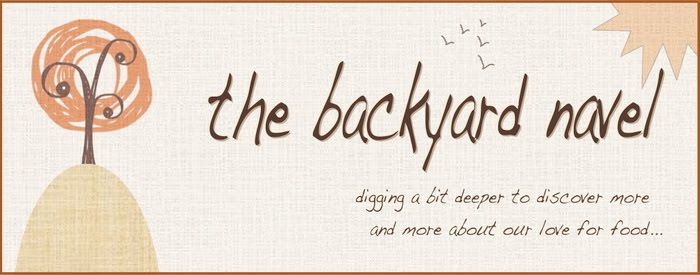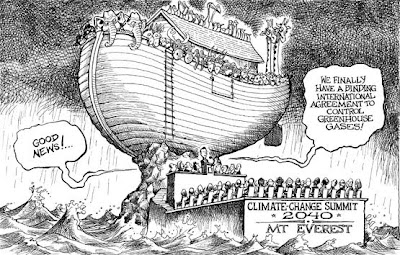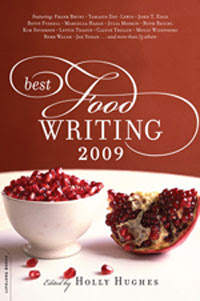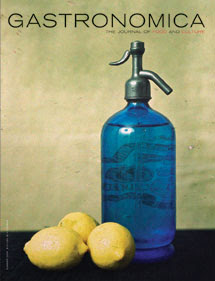i'd be curious, if polled, how many high school students would be able to point to where copenhagen is in on a world map. would they even know what country it's in, or even what part of the globe to start with?
but i'm also curious about something else. how many of us know what began two days ago, half-way around the world, in copenhagen, denmark? and of those who at least have an idea of what's going on there, how many can dictate the event's importance? and let's take it even further—of those people who understand the importance of the event, how many are doing anything relevant that, to be blatantly honest, the event's importance
requires of us?
i'm not trying to single anyone out here, because if these questions were posed to an auditorium full of people, i'd put money down that an overwhelming majority wouldn't have made it all the way to the last question. and you know what? that's okay. i'd be in that category, too. but what i'm attempting—and in turn investing hope that you'll mimic—is to
change that.
on monday, a gathering of nearly 200 countries commenced in copenhagen for what's been dubbed
the cop15, or the 15th united nations climate change conference. it's hard to believe that reports and outlooks grow more and more bleak for the world's climatic future, and yet an official u.n. gathering has begun for the fifteenth time, isn't it? there's no doubt though that people are listening, and the "green" movement is obviously catching on. just think about the commercials that air when you're watching tv. advertising and marketing has put a hefty leap of faith on this green movement, which is ironic considering, yes, it's selling their product, but it's also selling confidence in the movement. the more mainstream the green movement becomes, the more it settles into our consciousness as a necessity—and, hopefully soon, will no longer be a movement at all.
but what place does the cop15 have on a food blog? shits and giggles?
well, here's where your eyes open.
i've already written about how
eating animals affected
my thoughts on the thanksgiving turkey—i did indeed pass on the bird at the carving station—but that was just the beginning, especially when i came across this:
"animal agriculture makes a 40% greater contribution to global warming than all transportation in the world combined; it is the number one cause of climate change."
to be honest, i had no idea. when i thought of global warming—what the media portrayed, and still does, and the propoganda that flashed in my mind—i'd instintively blame industry for the the world's climatic erosion. factories and automobiles, that kind of thing. wouldn't you do the same?
now, i'm gonna have to ask you to bare with me here. i'm gonna throw some numbers out, and it might be a little much and the message might be lost somewhere in the numeric translation, but let's give it a shot.
"according to the u.n., the livestock sector is responsible for 18 percent of greenhouse gas emissions, around 40 percent more than the entire transport sector—cars, trucks, planes, and ships—combined. animal agriculture is responsible for 37 percent of anthropogenic methane, which offers twenty-three times the global warming potential (gwp) of co2, as well as 65 percent of anthropogenic nitrous oxide, which provides a staggering 296 times the gwp of co2."
first off, what's anthropogenic? to put it simply, it's a word the didn't exist fifty years ago, and was created by those studying the effects of human beings on the environment. it spawned a language to expolore the frontier of the direct correlation of human industry and global pollution. nothing complicated there, right? this is something we live and breath daily—like putting a face to a name for the first time.
but then, these numbers. they're staggering. but what the hell do they mean?
greenhouse gas is a familiar enough term, right? if you think back to middle or high school science class, you should be able to tap into what a greenhouse gas might be.
far, far above our tallest buildings there are gasses that absorb and emit radiation in relation to the sun (this is where i hear mr. overholt, my seventh grade science teacher, and his walrusy bravado). water vapor is a greenhouse gas, and so too is ozone—which yeah, is that thing we always say is getting a hole burnt through it. the ozone layer. but then there are three others: carbon dioxide, methane, and nitrous oxide. looking back at those numbers, carbon dioxide is the least harmful gas in terms of its warming potential—and when i say warming potential, i'm relating this directly to global warming. the term literally means what it sounds like. again, easy enough, right?
it breaks down like this. we're being lied to. the media, and even our own politicians, are failing to divulge the entire story here. and worse yet, what
is being divulged by the media, and lobbied for by washington, isn't even our greatest threat and concern when it comes to climate change. can you imagine turning in a paper to a college professor and only doing a third of the research? a student wouldn't even have the balls to show up to class ever again, let alone even hand the thing over. and yet this is exactly what's happening in our country, at an increasing rate, day after day. there is absolutely zero accountability.
look at the numbers. the warming potential of methane is up to twenty-three times more harmful than carbon dioxide, and animal agriculture is responsible for over a third of its production. are you absorbing those numbers? the warming potential of nitrous oxide is 296 times more harmful than carbon dioxide, and animal agriculture is responsible for two-thirds of its production. 296! and 65 percent contribution! not even a president of the united states has been elected to office with a majority of the popular vote as large as that two-thirds contribution of animal agriculture nitrous oxide production. and again, we're looking at a gas almost 300 times more harmful than carbon dioxide.
the bbc published a story with similar data, backed by the man responsible for one of the most influential reports on climate change, lord stern. to help break down the numbers, here's a chart they used to truly display the disparaging gap between animal agriculture's production of methane gas and that of humans.
one western cattle, a staple of the american diet, is responsible for a thousand times more methane production annually than you or me. if that's not mind blowing to you, then what is?
maybe this from
eating animals:
"the most current data even quantifies the role of diet: omnivores contribute seven times the volume of greenhouse gases than vegans do."
people take a lot of crap for choosing the vegan lifestyle, and i can tell you there's not much most restaurant staffers despise more than a vegan in the dining room, but while line cooks and waiters might think a vegan makes everything more complicated, maybe it's in fact we who aren't bothering to simplify things.
back to greenhouse gases.
i wasn't even planning on writing about this, but i couldn't ignore a story that aired earlier today on npr. it's title? "
new mexico dairy pollution sparks 'manure war.'" take a listen:
david kirby writes for
the huffington post, and on the site he published a
two-part feature from his upcoming book
animal factory. it's from his feature that i crossed paths with the
socially responsible agriculture project. here are some photos linked from their site of these manure lagoons, similar to what's wreaking havoc in new mexico.
just look at the size of these things. try to imagine that whatever flushed from your toilet didn't pipe its way to a treatment plant miles and miles away, but instead just dumped a few feet through your backyard pavement and into your swimming pool? that's exactly the purpose these things serve. they hold millions and millions of gallons of piss and shit. in his report john burnett paints a ghastly picture when he says a factory farm of 2,000 cows produces as much as sewage as a small city. the thing is, small cities have treatment plants. and everyday, a cow produces three times as much manure as it does milk. with 300,000 cows in new mexico alone, there's 5.4 million gallons of waste getting dumped each day.
we have to ask ourselves, how is this socially responsible? john burnett's report exposes the fallout on neighboring residences, specifically on the local watershed, which i just don't understand. how are these factory farms getting away with this? i've said it before, how is this not anything other than blatantly criminal?
here's a clip from this year's buzz-stirring documentary
food, inc., that sraproject has on the media portion of their site. if you've stuck with me for this long, i guarantee you can stick with me for the three and a half-minute lead-in to the movie—and do so to the end. there's a sweeping aeriel shot of a factory cattle farm that, in light of everything i've written in this post, is just gut-wrenching.
i've only just begun my research of factory farms and our food systems, but already i'm completely taken aback at how i'm continually shocked, and embarrassed, at what's been kept secret from me for so many years, so many meals, and so much money spent on my parents' behalf, and my own in my still young adulthood. everyday, often several times a day, i learn something new that's affected me ever since i started eating food. i love food, but when i began this blog i had no clue that i'd have learned what i have, nor ventured down this path, about this stuff it was i thought i loved. i do still love food, but the line of what food is and what it isn't is so unclear, that something else is happening here. the actions of the meat packing and dairy farmer lobbyists are blasphemous. food is something that defines community, is so much of what unites a family, especially through times of grief and mourning. do you want big corporate money capitalizing on your grief when you gather with family at the dinner table?
i realize there's no physical way to impact what's happening in copenhagen right now, but there are so many ways to at least
get involved. first off, continue following these issues. find people in the media who
are putting in that extra two-thirds research and divulging a better portrayal of what's really happening, and then figure out what you can do about how it makes you feel. talk about it. write your congressman.
donate. or maybe take that risky step, take the gamble this country hasn't seen in quite sometime that resulted in a unification of so many of its people against a far more powerful entity and join a local group that's contributing to the movement. eventually, whether we've failed to be heard enough and it's too late or we've done something right and spawned change, the government will listen, and it will act.
it's easy to paint the picture, but we get nowhere without taking that first small step.





























